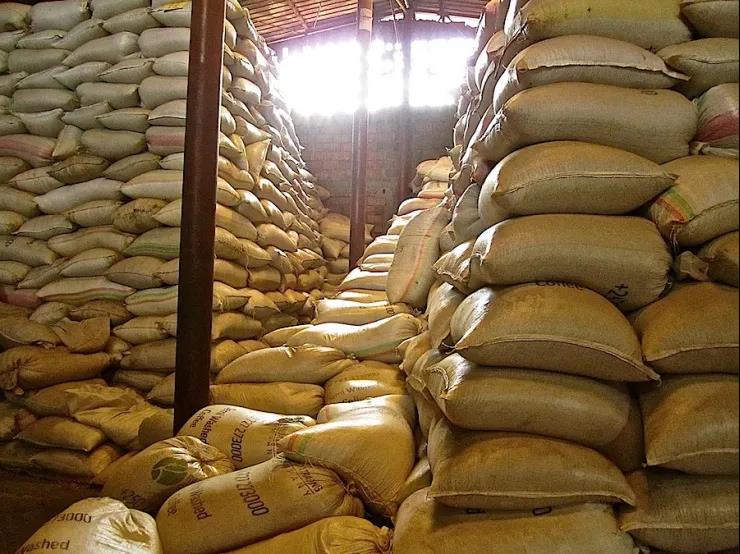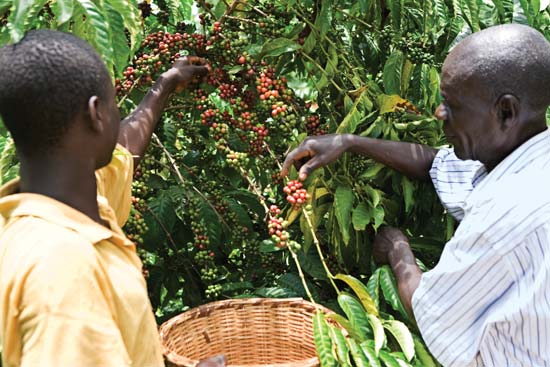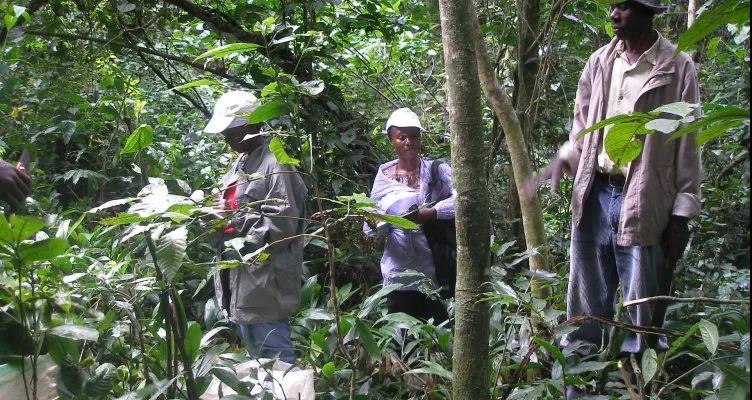There may be an imbalance between supply and demand for coffee in the world in 2021, so it is difficult for coffee prices to rise further.

Professional coffee knowledge exchange more coffee bean information please follow the coffee workshop (Wechat official account cafe_style)
For global agricultural markets, prices are likely to be stable in the first half of the year and weak in the second half of 2021. But coffee will be an exception!
Over the past five years, global coffee consumption has increased by about 2 per cent year-on-year. With the emergence of COVID-19 and related institutional restrictions in 2020, global coffee consumption has been impacted. With the production and promotion of vaccines in 2021 and the recovery of the global economy, global demand for coffee will recover. But demand after recovery may not be enough to balance supply in the coffee market.

Brazil, by far the world's largest coffee producer and exporter, expects total coffee production in 2021 to be the lowest in nearly four years due to drought during flowering due to the continued climate of La Nina. (note: la Nina refers to the persistent unusually cold sea surface temperature in the eastern and central equatorial Pacific. Under this influence, drought will occur in the eastern Pacific (such as South America), while precipitation will rise in the western Pacific (such as Australia and Southeast Asia). )

Conab, a Brazilian forecaster, estimates that Brazil may produce less than 50 million bags of coffee in 2020 / 21 and expects only 43.85 million to 49.59 million bags, a 21 per cent decrease of 31 per cent compared with the same period. Brazilian Arabica coffee is not only affected by drought, but also has a reduced planting area. Brazilian Arabica coffee beans will have a two-year low yield cycle. Brazilian Arabica coffee production is expected to be between 30 million and 33 million bags in 2021, which means coffee production will be 35% to 40% lower than the previous year, a 10-year low. On the other hand, Brazil's Robusta will produce about 14 million to 16 million bags, the same as the record two years ago.

Although coffee production in Brazil will decline, the International Coffee Organization (ICO) predicts that global coffee production in 2020amp21 will increase by 1.9% to 171.89 million bags compared with last year, and global consumption will also increase by 1.3% to 166.62 million bags compared with last year. Due to the influence of COVID-19, a lot of coffee beans were hoarded due to the inability to fully export coffee after harvest in 2019. With the promotion of vaccines and the relaxation of COVID-19-related regulations, all coffee will begin to be supplied in large quantities. According to a recent Reuters survey, the market expects a glut of 8 million bags of coffee in 2021.
For more boutique coffee beans, please add private Qianjie coffee on Wechat. WeChat account: kaixinguoguo0925
Important Notice :
前街咖啡 FrontStreet Coffee has moved to new addredd:
FrontStreet Coffee Address: 315,Donghua East Road,GuangZhou
Tel:020 38364473
- Prev

Uganda's coffee exports are not greatly affected by COVID-19. Coffee exports increased by 22% in 2020.
Professional coffee knowledge exchange more coffee bean information please follow the coffee workshop (Wechat official account cafe_style) Uganda Coffee Development Authority (UCDA) report released in December 2020, according to the data, Uganda exported 5491,2525 bags (60 kg each) of coffee in 2020, valued at US $515.94 million. In 2019, Uganda's coffee exports totaled 451, 9563 bags, worth 4.
- Next

Drought-resistant wild Robsta has been found in Uganda, which is of great help to the cultivation of drought-tolerant coffee varieties.
For more information on coffee beans, please follow the Coffee Workshop (Wechat official account cafe_style) recently coffee variety researchers in Uganda, the Netherlands and France have discovered a previously unknown wild robusta coffee population with potential drought resistance in Uganda's endangered forests. This discovery will help to cultivate drought-resistant coffee varieties and coffee industry in the future.
Related
- What documents do you need to go through to open a coffee shop? coffee shop coffee shop certificate processing process
- How to purchase Coffee beans in small Cafe how to choose a suitable supplier for domestic Coffee supply Company
- How to drink Starbucks Fragrance White Coffee? how to make Australian White Coffee? what Italian coffee beans are recommended?
- The Story of Flora Coffee: the name of Flora Coffee Bean and the implication of the Flowers on Florna Coffee
- How much does a cup of coffee cost? How much is the profit of a cup of coffee? What is the profit of the coffee shop in a year?
- Yunnan small Coffee, known as "fragrant Coffee", introduces the characteristics of Alpine Arabica Coffee producing areas in Yunnan, China
- 2023 latest Starbucks full menu price list how much is a cup of Starbucks coffee what is better to drink the most popular hot and cold drinks recommended
- Starbucks different kinds of Coffee Price list Starbucks menu 2023 Top Ten Best drinks in Starbucks
- Starbucks Spring praise Comprehensive matching Coffee Bean theme Story Packaging implication and taste description
- The cost of a cup of coffee latte American coffee cost price and selling price

